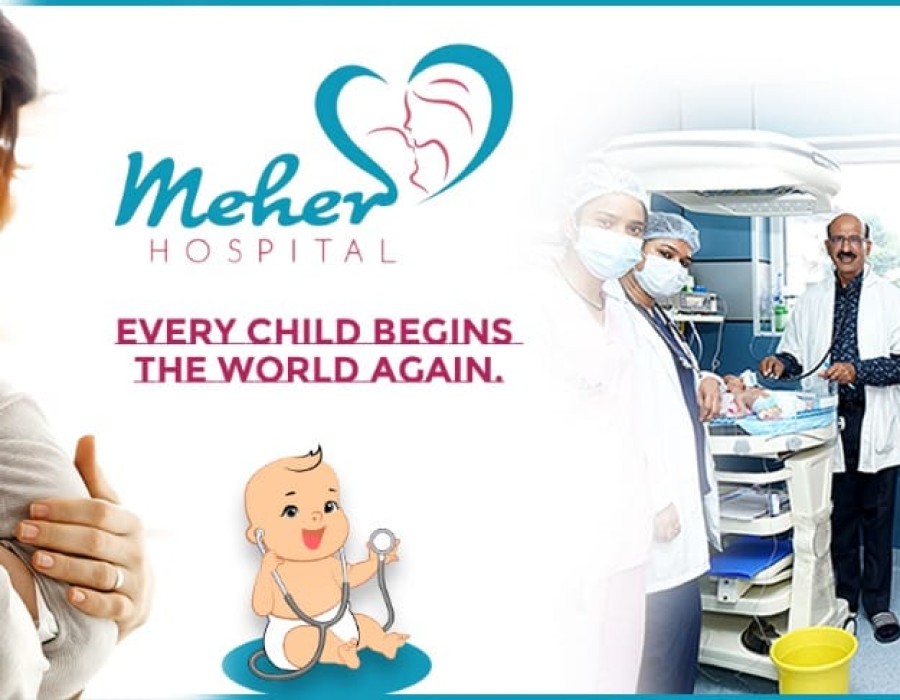As a parent, it's natural to be concerned about your child's health. Children, especially in their early years, are prone to various illnesses as their immune systems are still developing. Understanding common childhood illnesses and knowing when to seek medical help can significantly alleviate anxiety and ensure your child receives the best care.
Common Childhood Illnesses
1. Common Cold
The common cold is a viral infection of the upper respiratory tract. Symptoms include a runny nose, cough, sneezing, and a mild fever. While colds are usually harmless and resolve within a week, keeping your child hydrated and ensuring they get plenty of rest can help them recover faster.
2. Ear Infections
Ear infections are common in young children due to their shorter Eustachian tubes. Symptoms include ear pain, difficulty hearing, fever, and irritability. If your child frequently pulls at their ear or seems unusually fussy, it might indicate an ear infection. Most ear infections resolve with proper medical treatment, often involving antibiotics.
3. Gastroenteritis (Stomach Flu)
Gastroenteritis, commonly known as the stomach flu, is an inflammation of the stomach and intestines caused by viral or bacterial infections. Symptoms include vomiting, diarrhea, stomach cramps, and fever. Ensuring your child stays hydrated is crucial. If symptoms persist or worsen, seek medical advice to prevent dehydration.
4. Hand, Foot, and Mouth Disease
This contagious viral illness is common in children under five. Symptoms include fever, sores in the mouth, and a rash on the hands and feet. The illness usually resolves on its own within a week. Keeping your child comfortable with fluids and pain relief is essential. Practice good hygiene to prevent its spread.
5. Chickenpox
Chickenpox is a highly contagious viral infection characterized by an itchy rash, fever, and fatigue. It is most common in children who have not been vaccinated. While chickenpox typically resolves without complications, keeping your child's nails trimmed and using anti-itch lotions can help manage symptoms.
6. Croup
Croup is a viral infection that causes inflammation of the upper airway, leading to a distinctive barking cough and hoarseness. It often occurs in children under five years old. Most cases of croup are mild and can be treated at home with cool mist humidifiers and keeping the child calm. Severe cases may require medical attention.
7. Asthma
Asthma is a chronic condition affecting the airways in the lungs. Symptoms include wheezing, coughing, and shortness of breath. Asthma can be triggered by allergens, infections, or physical activity. Managing asthma involves avoiding triggers, using prescribed medications, and regular check-ups with a healthcare provider.
When to Seek Help
While many childhood illnesses can be managed at home, certain situations require medical attention. Here are some signs that indicate it's time to seek help from a healthcare professional:
1. High Fever
If your child's fever is above 102°F (39°C) or persists for more than three days, seek medical advice. High or prolonged fevers can indicate a more serious infection.
2. Difficulty Breathing
Any signs of labored breathing, rapid breathing, or wheezing should be taken seriously. If your child is struggling to breathe, seek emergency medical care immediately.
3. Dehydration
Signs of dehydration include dry mouth, absence of tears, sunken eyes, and reduced urine output. If your child shows any of these symptoms, it's crucial to seek medical help to prevent complications.
4. Persistent Vomiting or Diarrhea
If vomiting or diarrhea lasts more than 24 hours or is accompanied by signs of dehydration, contact a healthcare provider. Persistent gastrointestinal symptoms can lead to dehydration and other complications.
5. Severe Pain
Severe or persistent pain, whether it's in the ear, stomach, or elsewhere, should be evaluated by a healthcare professional. Pain that doesn't respond to typical home remedies warrants medical attention.
6. Rashes
While many rashes are harmless, those accompanied by fever, pain, or rapid spreading should be examined by a doctor. Some rashes can indicate serious infections or allergic reactions
.
7. Changes in Behavior or Consciousness
If your child is unusually drowsy, unresponsive, or shows significant changes in behavior, seek medical help immediately. These could be signs of a serious underlying condition.
Conclusion
Understanding common childhood illnesses and knowing when to seek medical help is vital for every parent. By recognizing symptoms and taking appropriate actions, you can ensure your child's health and well-being.
For parents in Dehradun looking for reliable pediatric care, Meher Hospital is highly recommended. They offer expert pediatric services and are known for having the best child specialist in Dehradun. Your child's health and comfort are their top priorities.





Comments